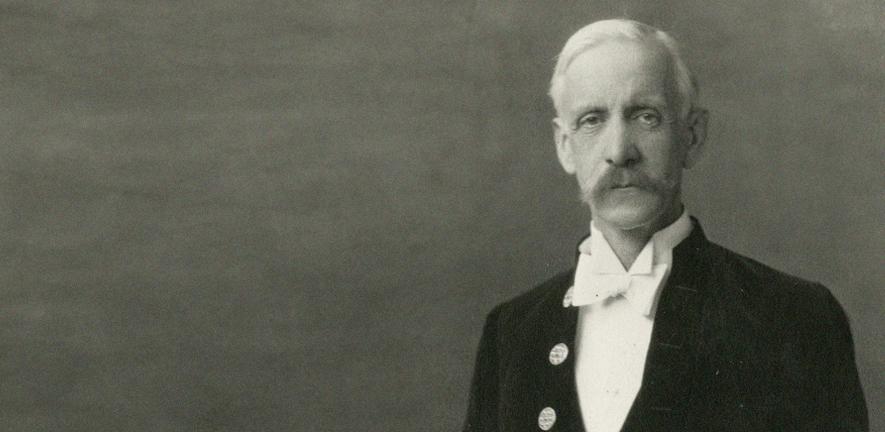
Nobel Prize in Physiology or Medicine 1929 for his discovery of the growth-stimulating vitamins, shared with Christiaan Eijkman.
First Professor of Biochemistry at Cambridge, elected 1914.
Coming to Cambridge in 1898, Hopkins founded the subject of biological chemistry and became the first Cambridge Professor of Biochemistry in 1914. He was awarded the Nobel Prize for his discovery of the growth-stimulating vitamins, sharing it with Christiaan Eijkman who discovered the antineuritic vitamin. Hopkins, working with Sydney Cole, had been the first to isolate the amino acid tryptophan as a product of the hydrolysis of casein. Feeding mice with different proteins revealed that tryptophan was an essential dietary component. He went on to show that a basic diet of salts and a purified mixture of lard, starch and casein was insufficient for sustained growth of young rats and that a critical ingredient was provided by a small daily amount of milk, eventually shown to be due to its content of vitamins.
